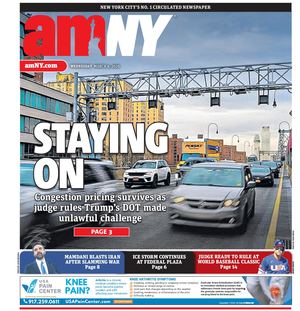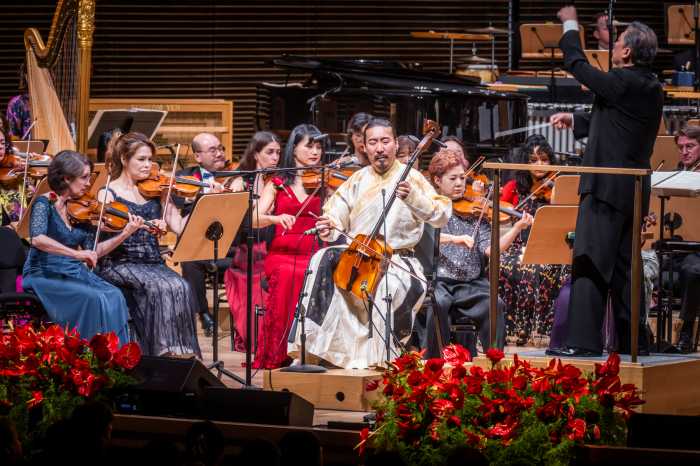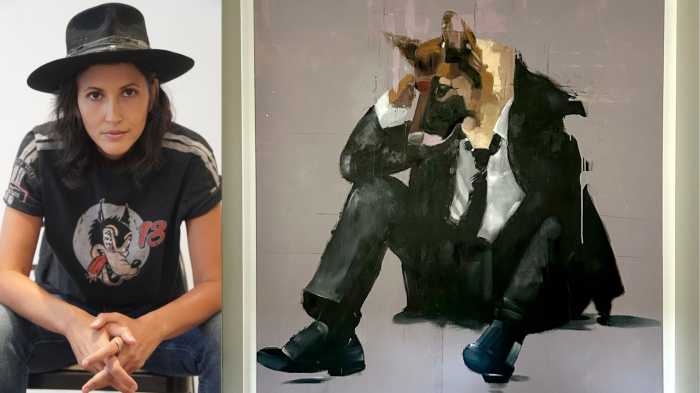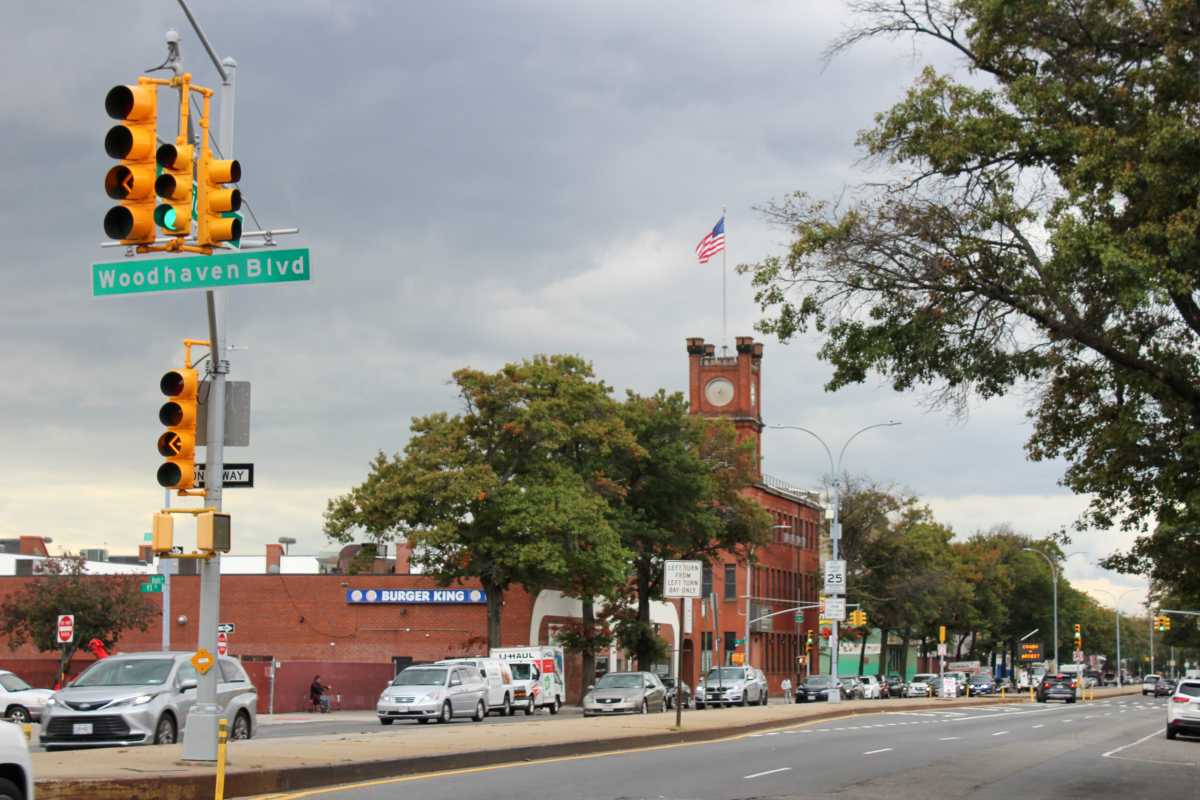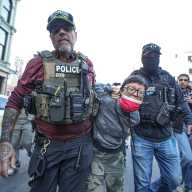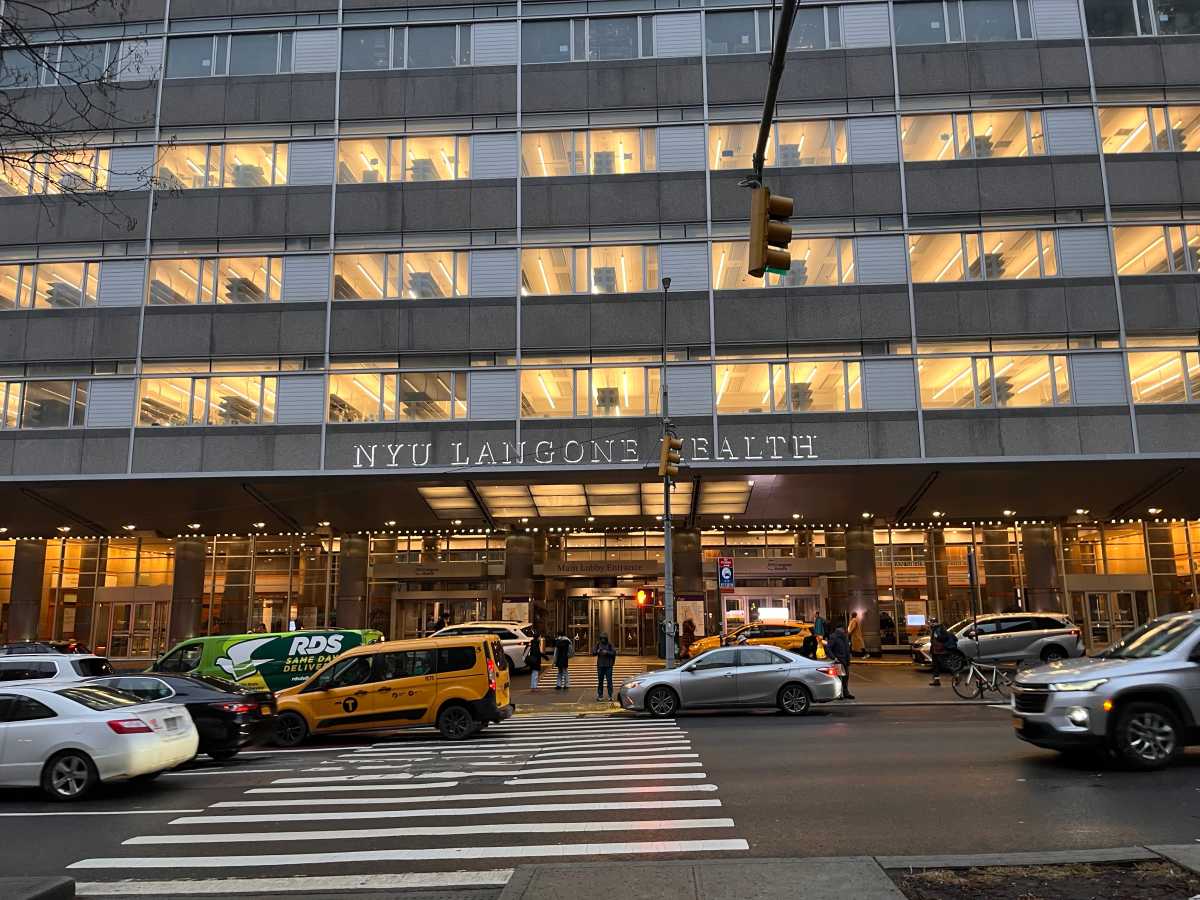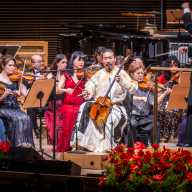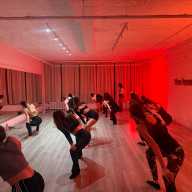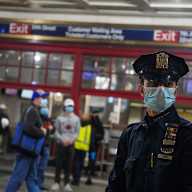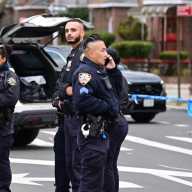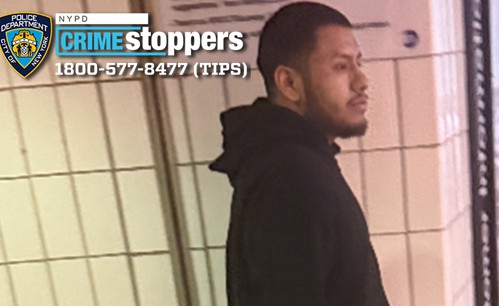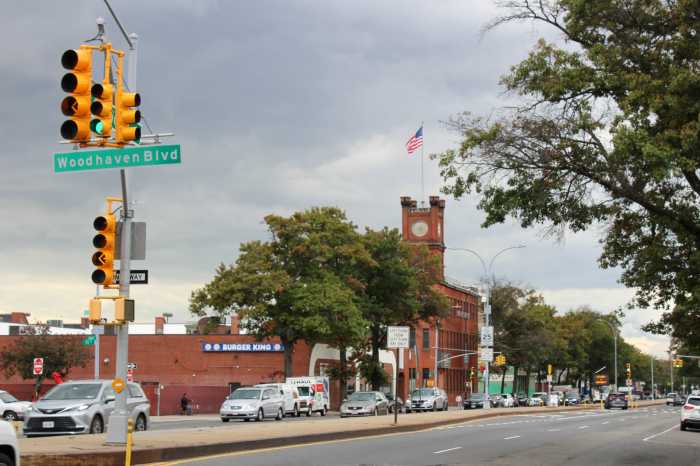By David H. Ellis
With a “final offer” of the West Side Highway or nothing presented last Wednesday by the city’s police, parks and transportation commissioners, the group United for Peace & Justice responded the best way they knew — by staging a protest near City Hall, demanding a meeting with Mayor Michael Bloomberg.
Chanting “Central Park is our park” and hoisting handmade signs and placards above their heads, about 100 protesters marched along the western side of City Hall Park between Murray St. and Park Pl. on Thurs., July 16, urging the mayor to reconsider their request to use Central Park, or any other site in the city, besides the rally location at West and Chambers Sts. and the protest route along the West Side Highway.
“The only thing left on the table is the West St. option and now they are putting it on the table not as option but as an ultimatum. We believe that is not the way to have good-faith relations,” said Leslie Cagan, national coordinator for United for Peace & Justice. “We don’t want to march there, we are part of the fabric of the city.”
U.P.J., a group of over 800 national and local organizations, is planning a protest that is expected to include 250,000 people on Aug. 29, one day prior to the start of the G.O.P. Convention. The group has recently been embroiled in negotiations with the city to use sites ranging from the Great Lawn and the North Meadow in Central Park to Third Ave. and even Times Sq.
The route offered by Police Commissioner Raymond Kelly would start at 23rd St. and head north along Seventh Ave., before turning left at 34th St. and ultimately south along the West Side Highway before culminating in a rally.
Adrian Benepe, the Parks commissioner, has said repeatedly that Central Park can no longer accommodate massive crowds because it would damage the refurbished lawns. He said if it rained on the protest day, the Great Lawn could have to close for a year.
Bill Dobbs, a spokesperson for Peace & Justice, said the intersection of West and Chambers Sts. and the adjoining West Side Highway, which would accommodate a significant portion of the protesters, is problematic.
“They keep trying to push us onto the highway, which, with the crowd, would stretch for three miles on hot pavement,” said Dobbs in front of the gates surrounding City Hall. “Projecting the sound would be difficult, shade would be difficult, and it’s the edge of the island. It’s not a place that has any meaning for New Yorkers.”
Dobbs said the group would prefer Third Ave. or Times Sq. to the highway. A high-ranking city official, requesting anonymity, floated the Times Sq. option a few weeks ago, but Kelly nixed this idea.
Dave Silver, who donned a brilliant orange poster around his neck during the midday demonstration, believed that the city’s resistance to other proposals is simple partisan politics.
“This is a ploy — these permits are given out in a political way. They don’t like the message, they don’t like the messenger,” said the 80-year-old Silver, a Downtown resident who lives on Gold St. “The bottom line is that Central Park is the best place because we can have a demonstration where people are in hearing and viewing range of the stand.”
David Murrow, who lives on River Terrace, an area neighboring the proposed rally site, said he was baffled how it could be considered the ideal site for protesters.
“I can’t imagine why they would put a stage on Chambers St.,” said Murrow. “Where will the N.Y.P.D. fit a huge soundstage and 100,000 protesters? Chambers and the West Side Highway is a busy place. What about all the moms, strollers and bicyclists?”
Bill Dobbs, a U.J.P. spokesperson, said yesterday that negotiations had “broken down.”
“The city demands that we accept West St. unconditionally. We’ve got to work out related issues, such as use of pens, access to drinking water, access to mass transit, possible shuttles,” said Dobbs. “Central Park is the best and safest site for this rally, but we are listening to what the city has to say about the West Side Highway — and they are refusing to provide details.”
For More: https://www.amny.com/news/two-open-24-in-chelsea-and-the-meat-market/
